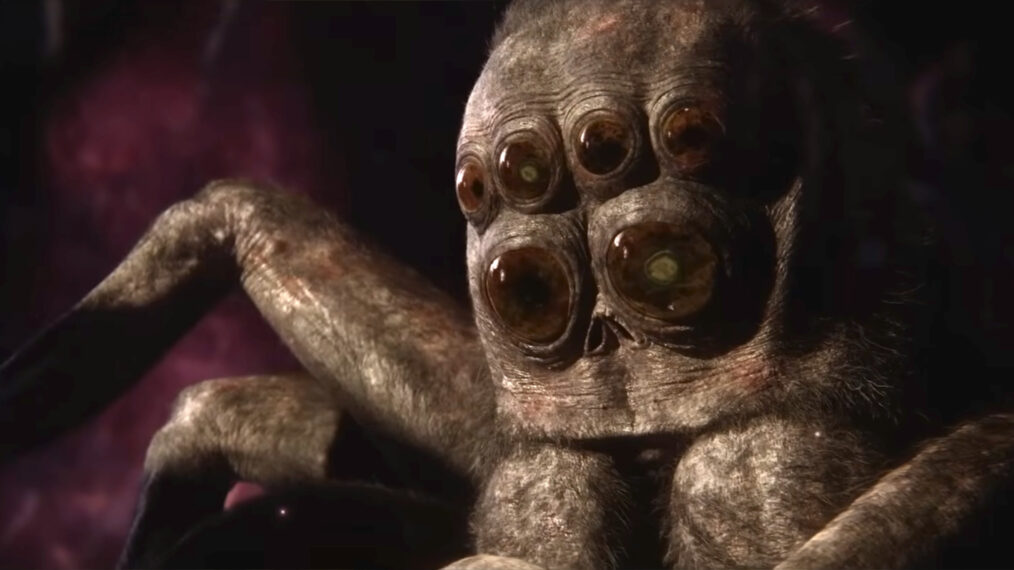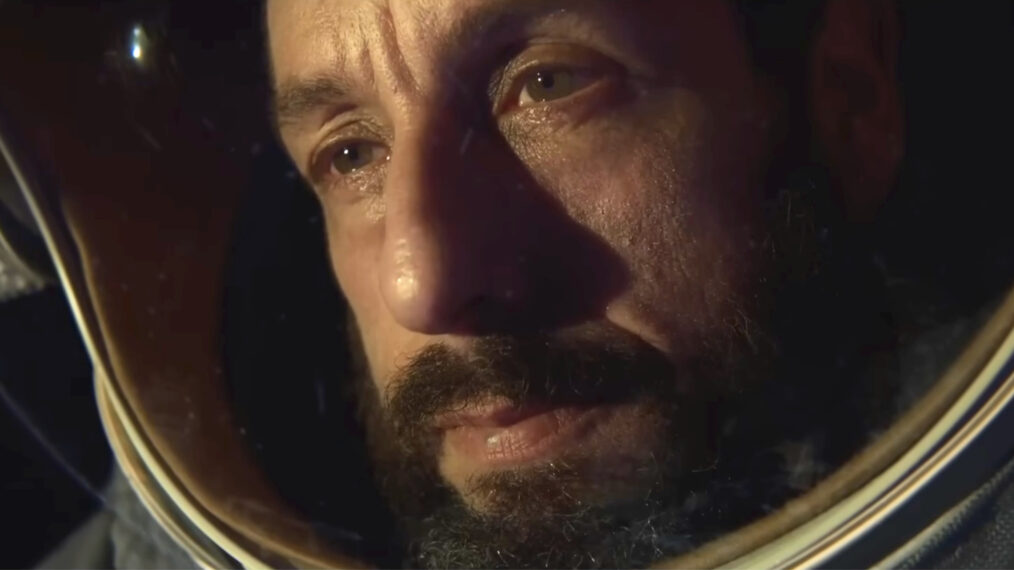Adam Sandler’s multi-year deal with Netflix has resulted in movies reviled (The Ridiculous 6), revered (Uncut Gems), and — with the new film Spaceman — bewildering and deliberately open to interpretation.
“It’s like reading a book, listening to a song, or reading a poem, whatever,” director Johan Renck told RadioTimes.com. “Your own experiences will guide how you take in the film, basically.”
So, what’s up with Spaceman’s ending? And what does it all mean? Here’s what we’ve gleaned…
In the film — written by Colby Day and based on the Jaroslav Kalfař novel Spaceman of Bohemia — Sandler plays Jakub Procházka, a Czech astronaut six months into a Euro Space Program mission to investigate the mysterious space dust of our solar system’s (fictitious) Chopra cloud.
As the sole astronaut on the mission, Jakub has ample time to reflect on his life, including his failing relationship with pregnant wife Lenka (Carey Mulligan). But Jakub isn’t quite alone. Helping him weigh life’s big questions — and reconsider his track record with Lenka — is an ancient, possibly alien, possibly imaginary spider-like creature named Hanuš (voiced by Paul Dano).

Netflix
Jakub eventually realizes Hanuš is dying: On its own planet, Hanuš was infected by alien invaders named Gorompeds. And Hanuš spends its final moments traveling with Jakub through the Chopra cloud — calling it “the beginning and the end” and “every vibration of all time” — and guiding him through a rush of memories that convinces Jakub that family and human connection are more important than any space mission.
Having (presumably) corrected the course of Jakub’s life, Hanuš disintegrates, succumbing to the Goromped infestation. Jakub is rescued by South Korean astronauts aboard their own Chopra-investigating spaceship, and he calls Lenka to reconcile with her.
“If I had known then what I know now, I never would have left,” he tells her.
“If I had known then what I know now, would I have kissed you?” she responds. “It was a really good kiss.”
The film cuts to black, giving viewers the sense that a reformed Jakub will reunite with Lenka once he gets back to Earth. “I [wanted] to convey hope,” Renck told British GQ. “I don’t think anyone wants or needs anything else that breaks our heart, in any shape or form.”
The filmmaker also said that Hanuš is “one hundred percent real” — in his mind, at least. “The minute Hanuš is not real, the whole film loses its meaning.”
Not everyone agrees. “I’ve shown this film to friends, some people think that Hanuš is real, some people think that Hanuš is a figment of Jakub’s imagination and his inner monologue, so to speak,” Renck told RadioTimes.com. “[A] production designer I worked with for 20 years doesn’t believe anything happened. He believes that Jakub is sitting at home in his apartment in Prague being depressed after his wife has left him and this is all going on in his mind.”
Renck added: “It’s like, yeah, whatever floats your boat, man. There is no truth to these matters.”

